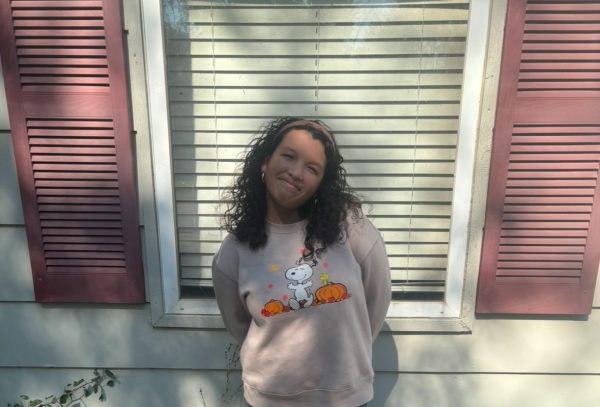Living with food allergies means having to be asked a million questions and having to ask a million questions.
“Every time someone finds out I’m allergic to something they’re always like, ‘Oh my gosh I feel so bad for you’ and ask something like ‘You can’t have like chocolate”’…just take a second to think about it, yeah obviously I can’t have that,” freshman Addison Zerger said.
Nearly 18% of people in the United States have food allergies. Most food allergies start when someone is born, but those allergies can vary as you get older. According to the Morbidity and Mortality Weekly Report (MMWR),
“Now that I’m older, I want to try mangos, but I am also allergic to fish, which I developed about two months ago. I am planning to try mangos, just not when school is around, just in case my symptoms do happen,” sophomore Analeyda Ventura said.
Some students think those with food allergies are lucky because of special meals, but the ones living with food allergies would disagree.
“When I was little at birthday parties, I would always have to bring my own cupcake, which always made me feel really uncomfortable,” Zerger said.
Fifty-five percent of restaurants have ingredients listed on their menus,18.4% have only a few ingredient lists, and the other 25% do
not have an ingredient list at all in the United States, according to Morbidity and Mortality Weekly Report (MMWR).
“I mean it’s nice if they do [have ingredient lists] but I mean, I also don’t expect it because that just takes a lot more work, and it’s easy for me to just say ‘Hey what cooking oil do you use,’” freshman Julie Schmidt said.
Some may argue which allergies are worse, food allergies or seasonal allergies.
“I feel like it depends on how many allergies you have food-wise… if you can avoid a few select things, I feel like seasonal allergies are worse because you can’t avoid seasonal allergies,” Schmidt said.
Ventura said food allergies are worse.
“Honestly, food allergies, you have to deal with them your entire life, but seasonal, they happen during the spring or like fall, but overall, food allergies are definitely worse,” Ventura said.
People without food allergies might struggle to understand the limitations of living with an allergy.
“[food allergies] are something you learn to deal with … but sometimes I just wish others could understand that,” Zerger said.
Living with a food allergy is muscle memory. They know what they are allergic to and understand what they can and can’t have.
“It’s little stuff you would never think about, every single new food. I pick something up and read the ingredient’s list,” Zerger said.
It was a painful experience for some to find out what their food allergies were.
“I was about two, and my parents tried to give me a peanut butter and jelly sandwich, and I started coughing, and then my parents realized I wasn’t breathing and rushed me to the hospital,” Schmidt said.
Students who live with food allergies are prepared for situations where they might encounter an allergen.
“Like I said, it’s something you learn to deal with, but sometimes I just wish I could order anything on the menu or not having to pre-plan my meal for an event,” Zerger said.
Living with Food allergies
Students talk daily struggles living with food allergies
Jeyla Sanchez, Reporter
April 14, 2025
0
More to Discover
About the Contributor

Jeyla Sanchez, Reporter
Jeyla Sanchez, I’m a freshman and enjoy reading and writing in my free time as well as soccer. I am in Spanish club and I play the clarinet in the railer band. I love being around my family and friends when I get the chance too!






